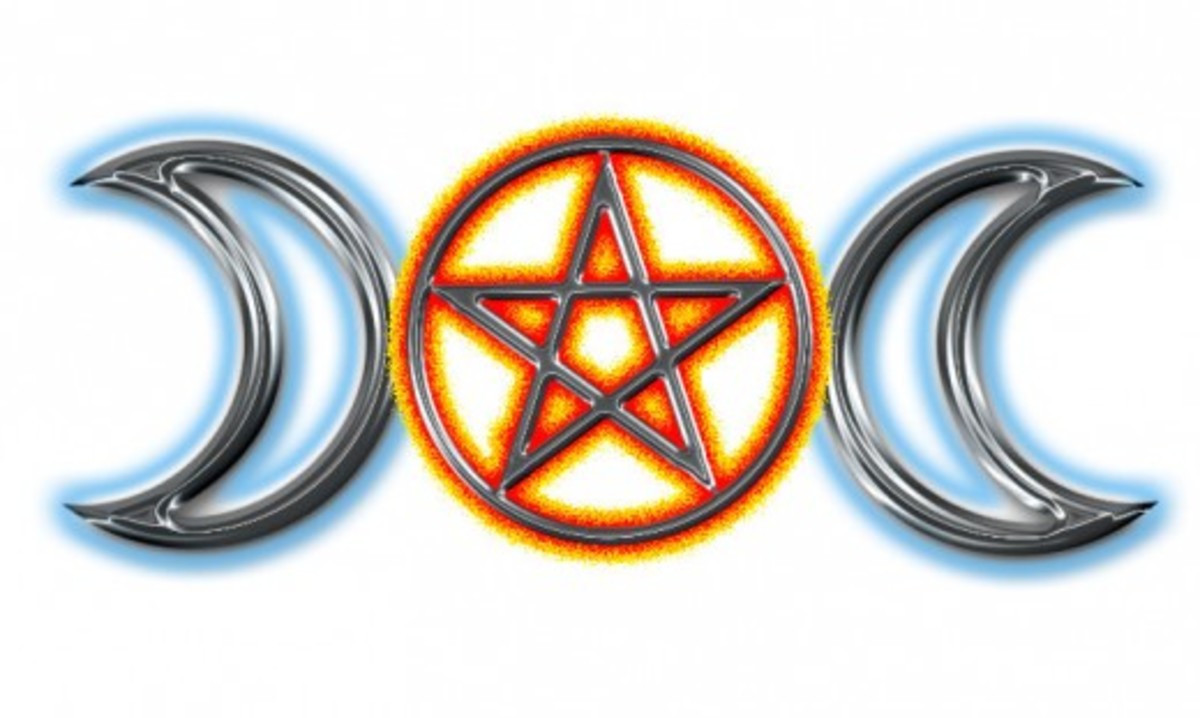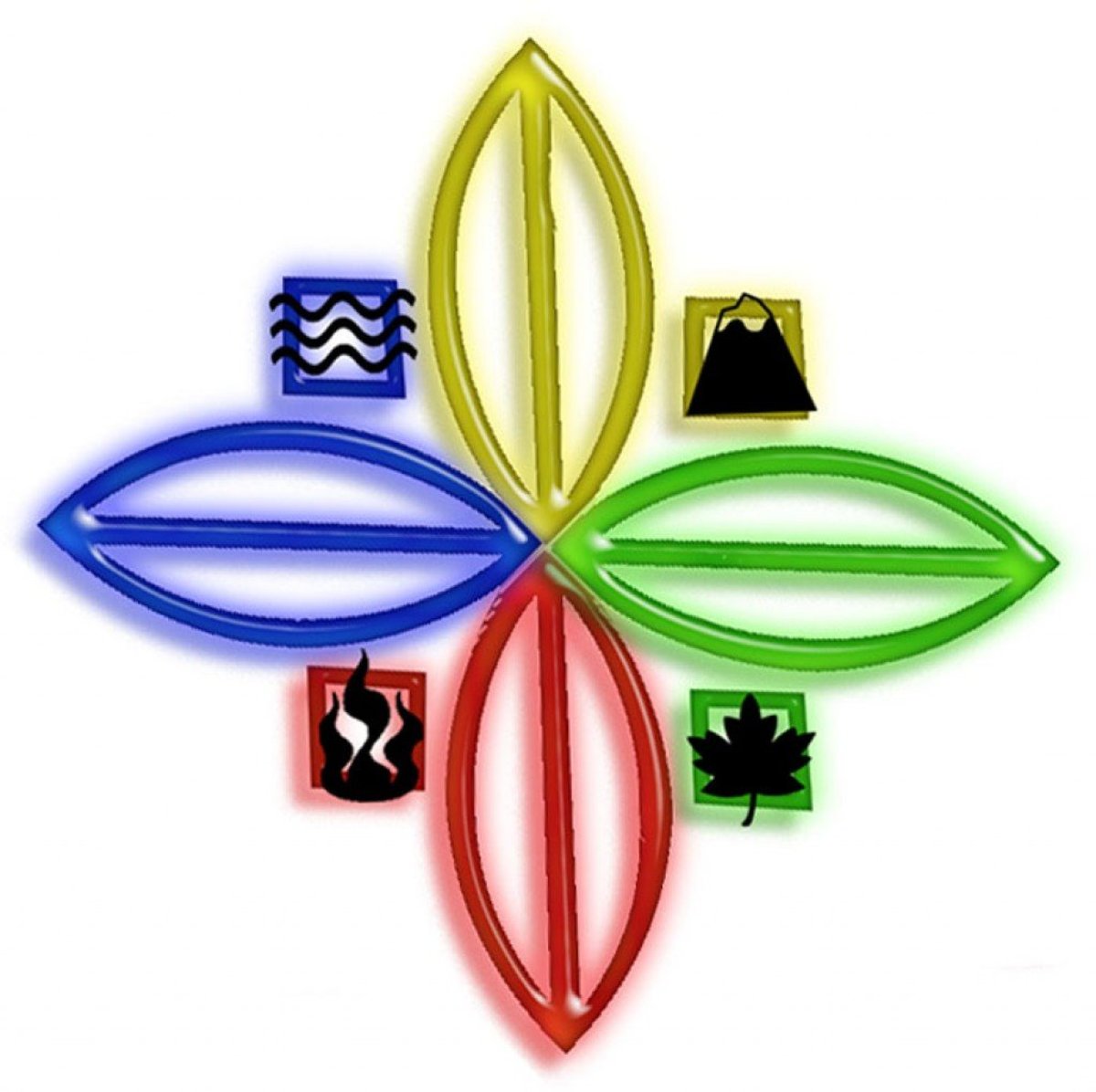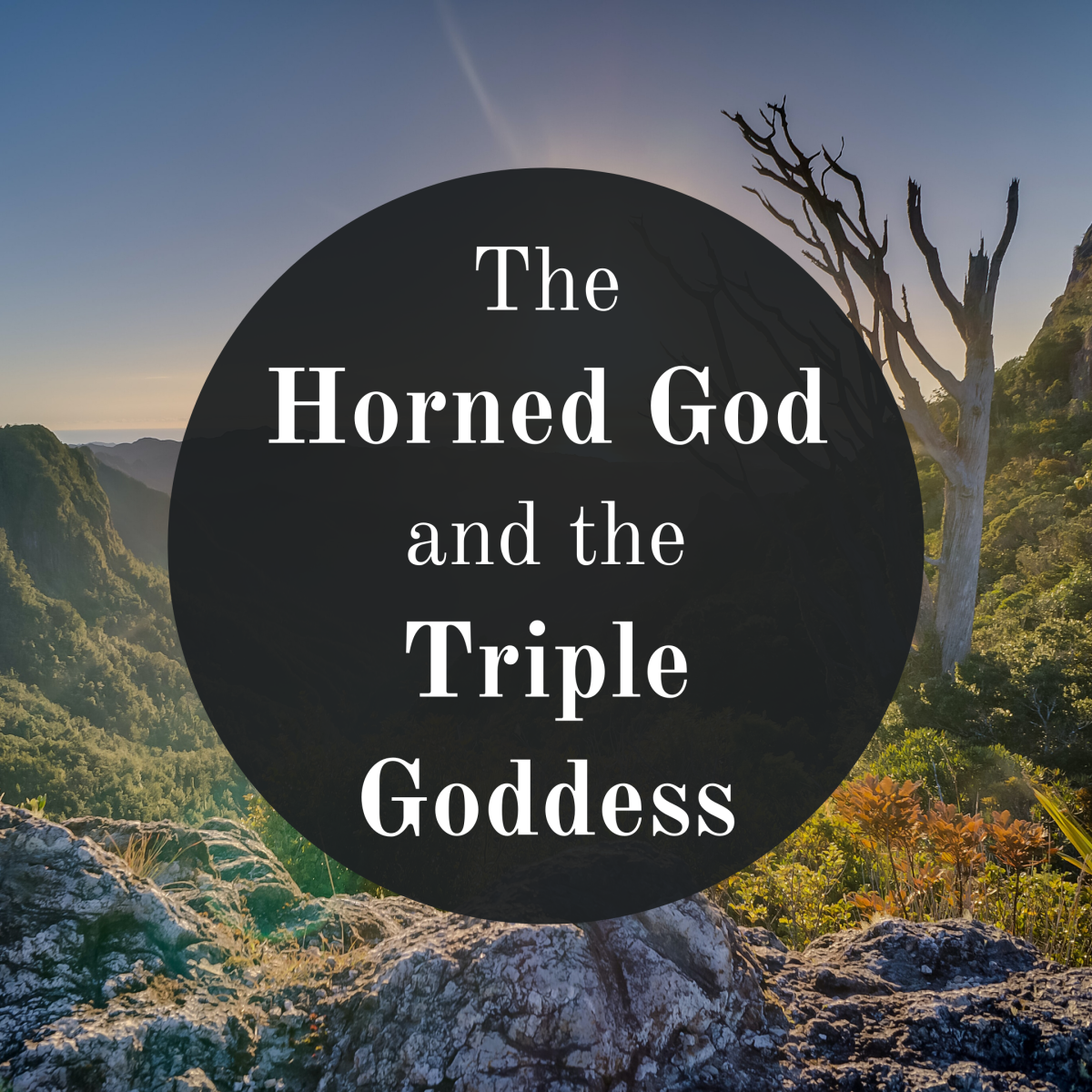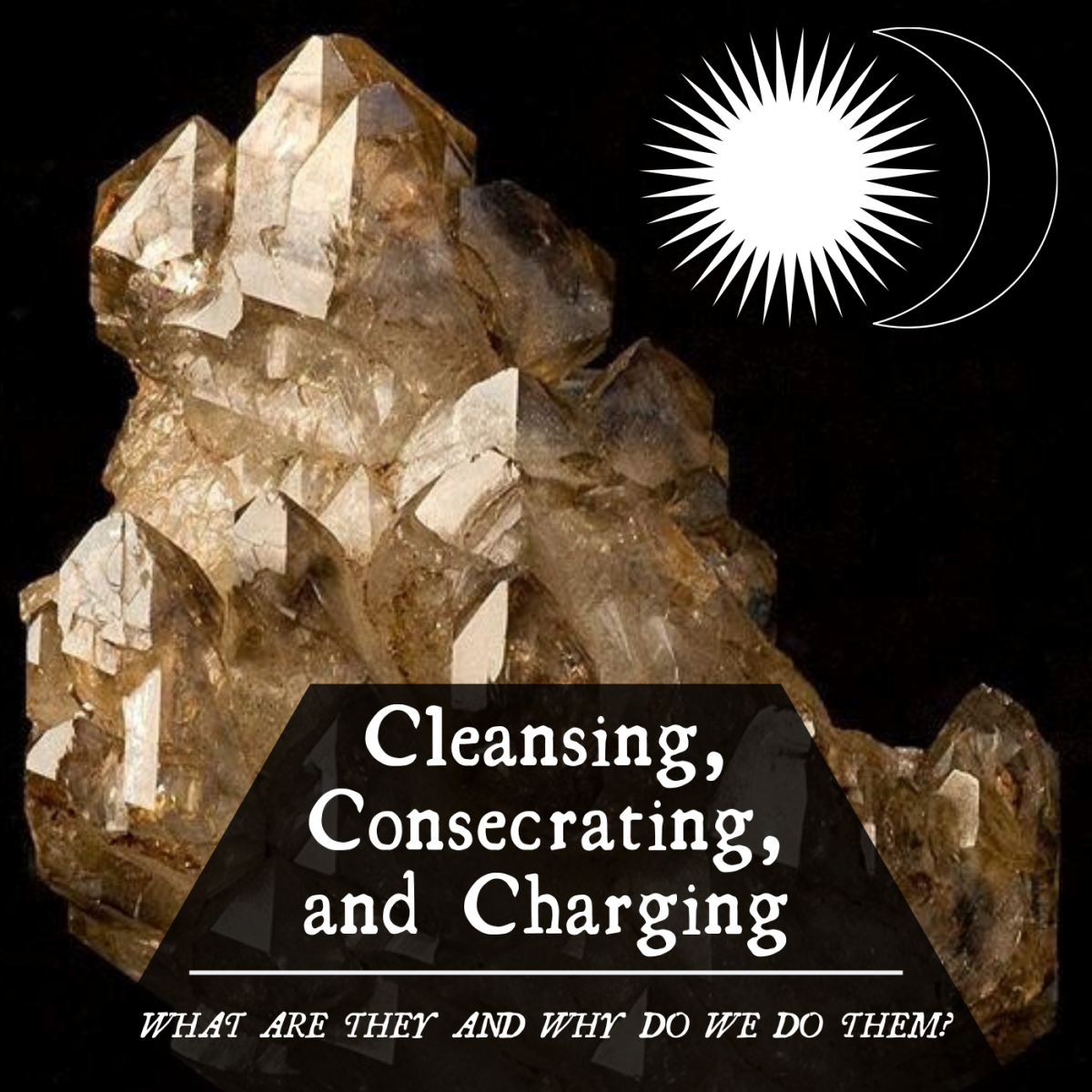The Wiccan Rede: A Guiding Light of Harmonic Ethics and Spiritual Freedom
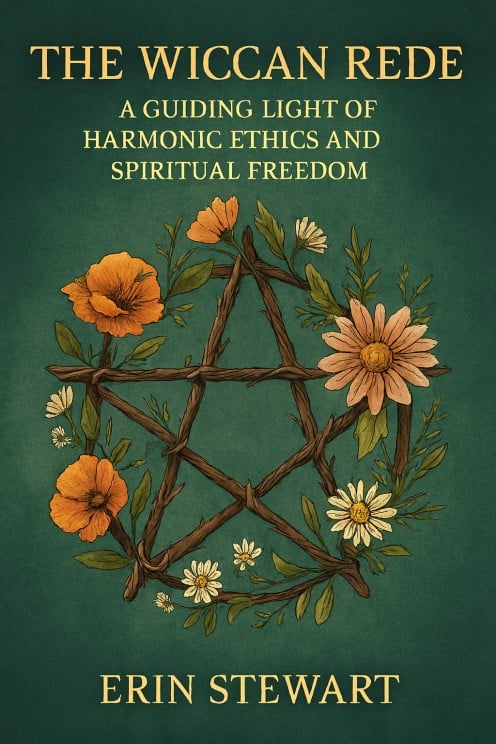
At the Heart of Wicca: The Rede as Sacred Ethic and Spiritual Call
Woven into the very soul of Wiccan philosophy is a deceptively simple yet spiritually potent incantation: “An it harm none, do what ye will.”
This eight-word maxim, known as the Wiccan Rede, is more than a rule—it is a ritualized ethic, a ceremonial compass, and a spiritual invocation. It beckons practitioners to live with intention, to honor their inner truth, and to move through the world with reverence for the sacred web of life.
The Rede’s language, drawn from archaic English, evokes timelessness:
-
“An” meaning “if,”
-
“Harm none” as a call to nonviolence and compassion,
-
“Do what ye will” as an invitation to authentic, sovereign living.
Yet beneath its poetic brevity lies a transformative philosophy: one that balances freedom with responsibility, power with empathy, and ritual with reflection.
To follow the Rede is to recognize that every action—mundane or magickal—ripples outward. It is to understand that harm is not limited to physical injury, but includes emotional, spiritual, and ecological disruption. It is to live in ceremonial relationship with all beings, knowing that the Earth, the elements, and the unseen realms are not separate, but kin.
The Rede does not demand perfection. It invites awareness. It does not impose dogma. It offers discernment. It does not restrict the will. It sanctifies it—so long as it is wielded with compassion and care.
In this way, the Wiccan Rede becomes both a moral compass and a spiritual threshold—a whispered vow between the practitioner and the cosmos: “I will walk my path with truth, and I will walk it gently.”
What Does the Wiccan Rede Mean?
The phrase uses archaic English:
-
“An” means “if”
-
“Harm none” refers to avoiding physical, emotional, and spiritual harm
-
“Do what ye will” encourages personal freedom and self-expression
Together, it translates to: “If it harms none, do as you will.” This is not a license for reckless behavior, but a sacred reminder that freedom must be tempered with compassion, accountability, and awareness.

What the Rede Entails: Principles and Practice
The Wiccan Rede is not a rigid commandment but a living ethic—flexible, introspective, and deeply personal. Here’s what it entails:
1. Personal Freedom with Responsibility
-
Encourages individuals to follow their true path, passions, and spiritual practices
-
Requires thoughtful consideration of how one's actions affect others and the world
2. Harm Reduction in All Forms
-
Includes physical harm (violence, neglect), emotional harm (manipulation, cruelty), and spiritual harm (disrespecting sacred boundaries)
-
Extends to animals, ecosystems, and even oneself—self-care is seen as a moral imperative
3. Magickal Ethics
-
Before casting spells or performing rituals, Wiccans ask: “Will this harm anyone?”
-
Magick is seen as a sacred tool, not a weapon—its use must align with the Rede
4. Environmental Stewardship
-
Nature is sacred in Wicca; harming the Earth violates the Rede
-
Sustainable living, reverence for the elements, and eco-conscious rituals are central
5. The Rule of Three
-
A related concept: whatever energy you send out—positive or negative—returns to you threefold
-
Reinforces the Rede’s message: act with integrity, because consequences ripple
What Is the Rule of Three?
At its core, the Rule of Three states: Whatever energy you send into the world—positive or negative—returns to you threefold.
This isn’t just karma with a numerical twist. It’s a spiritual magnification, suggesting that every action, intention, or spell ripples outward and rebounds with amplified force. Whether literal or symbolic, the Rule of Three invites practitioners to wield their power with reverence and foresight.
Interpretations of the Rule
1. Literal Return
-
Many Wiccans believe that if you perform a kind act, you’ll receive three acts of kindness in return.
-
Conversely, harmful actions may bring triple the suffering—emotionally, spiritually, or circumstantially.
-
This view treats the Rule as a cosmic law of energetic justice.
2. Symbolic Reflection
-
Others interpret it as a metaphor: your actions affect you on three levels—mind, body, and spirit.
-
A single deed may ripple through your emotional state, physical well-being, and spiritual path.
-
It’s less about punishment and more about holistic consequence.
3. Ethical Compass
-
Beyond metaphysics, the Rule of Three serves as a moral reminder: “Before you act, consider the full arc of your influence.”
-
It encourages mindfulness, accountability, and a deep respect for the unseen threads that connect all beings.
Origins and Evolution
The Rule of Three first appeared in print in Gerald Gardner’s 1949 novel High Magic’s Aid, where he wrote:
“Mark well, when thou receivest good, so equally art bound to return good threefold.”
Later, Raymond Buckland and Lady Gwen Thompson helped popularize the concept in Wiccan literature and poetry, especially in the 1975 “Rede of the Wiccae.” While some view it as a modern innovation influenced by Christian morality or Eastern karma, it has become a defining feature of Neo-Wiccan traditions.
Living the Rule of Three
To live by this law is to:
-
Cast spells with care and clarity
-
Speak with intention and empathy
-
Act with the awareness that every choice is a seed—what you plant, you harvest threefold
It’s not about fear—it’s about energetic integrity. The Rule of Three invites practitioners to become stewards of their own spiritual ecology, cultivating a life of balance, beauty, and benevolent power.
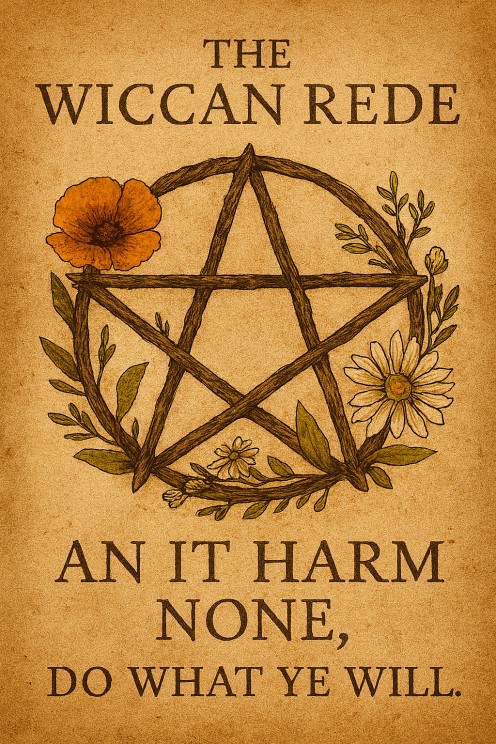
Origins and Influence
The Wiccan Rede gained prominence in the mid-20th century through the writings and teachings of Doreen Valiente, a gifted poet and High Priestess, and Gerald Gardner, a retired British civil servant often hailed as the “father of modern Wicca.” Gardner claimed to have been initiated into a secretive coven in England’s New Forest in 1939, and following the repeal of Britain’s witchcraft laws in 1951, he publicly introduced Wicca through his book Witchcraft Today (1954). With Valiente’s lyrical contributions, the Rede evolved into a poetic and ethical touchstone for the emerging spiritual movement.
Though Wicca itself is a modern religion, its roots draw inspiration from pre-Christian European traditions, Western esotericism, and folk magic. The formal structure of Wicca began to crystallize in the 1950s, making it less than a century old in its current form. However, its symbolic language, seasonal rituals, and reverence for nature echo ancient pagan practices that span millennia.
The Rede—“An it harm none, do what ye will”—embodies the spirit of this revival. Its elegant phrasing and moral clarity have made it a cornerstone of Wiccan belief, guiding practitioners toward a life of personal freedom tempered by compassion, accountability, and spiritual integrity. While its exact origins remain debated, the Rede continues to serve as a living ethic, bridging old wisdom with modern spiritual autonomy.
Living the Rede: A Daily Practice
To live by the Wiccan Rede—“An it harm none, do what ye will”—is to walk a path not of rigid dogma, but of conscious devotion. It is a daily ritual of reflection, a spiritual choreography where freedom and responsibility dance in harmony.
Reflect Before Acting Each choice becomes a spell, each word a ripple in the unseen. Practitioners pause before action, attuning to the energetic consequences of their deeds. Reflection is not hesitation—it is reverence for the interconnected web of life.
Honor Your Truth While Respecting Others The Rede invites radical authenticity, but never at the expense of another’s dignity. It teaches that personal sovereignty flourishes best in a garden of mutual respect. To speak one’s truth is sacred; to listen deeply is divine.
Practice Empathy, Kindness, and Ecological Mindfulness Compassion is the heartbeat of Wiccan ethics. Kindness is extended not only to fellow humans, but to animals, plants, rivers, and stones. The Earth is not a resource—it is a relative. Living the Rede means living in ritual relationship with the world.
Embrace Ritual and Magick as Tools for Healing, Not Harm Magick is not manipulation—it is communion. Spells, invocations, and ceremonies are crafted to heal, to bless, to restore balance. The Rede reminds us that power must be wielded with humility, and that every ritual is a vow to do no harm.
Intentional Living Over Perfection The Rede does not demand flawlessness—it asks for awareness. It is a compass, not a cage. Practitioners are encouraged to live deliberately, to make mistakes with grace, and to grow through the sacred act of choosing again.
A Life of Spiritual Sovereignty Ultimately, the Rede is a call to live as a sovereign soul—guided not by fear or control, but by compassion, wisdom, and reverence. It is a living ethic, a whispered promise between the self and the cosmos: “I will walk gently, and I will walk true.”
Sources
-
Valiente, D. (1964). Speech on the Wiccan Rede. Earth Religion News. (First public citation of the “eight words” couplet.)
-
Gardner, G. B. (1954). Witchcraft Today. London: Rider & Company. (Introduced Wicca publicly and discussed its ethical foundations.)
-
Pagan Club. (n.d.). Wiccan Rede: Meaning and Interpretation. Retrieved September 29, 2025, from https://www.paganclub.com/wiccan-rede/
-
Witchy Magicks. (n.d.). What is the Wiccan Rede? (Core Spiritual Principles). Retrieved September 29, 2025, from https://witchymagicks.com/what-is-the-wiccan-rede/
-
Wikipedia contributors. (n.d.). Wiccan Rede. Wikipedia. Retrieved September 29, 2025, from https://en.wikipedia.org/wiki/Wiccan_Rede
-
Wikipedia contributors. (n.d.). Rule of Three (Wicca). Wikipedia. Retrieved September 29, 2025, from https://en.wikipedia.org/wiki/Rule_of_Three_(Wicca)
-
Pagan Club. (n.d.). Rule of Three: Pagan Ethics and Threefold Law Explained. Retrieved September 29, 2025, from https://www.paganclub.com/rule-of-three/
-
Wicca Academy. (n.d.). The Threefold Law. Retrieved September 29, 2025, from https://wiccaacademy.com/the-threefold-law/
-
History.com Editors. (n.d.). Wicca. HISTORY. Retrieved September 29, 2025, from https://www.history.com/articles/wicca
-
Wikipedia contributors. (n.d.). Doreen Valiente. Wikipedia. Retrieved September 29, 2025, from https://en.wikipedia.org/wiki/Doreen_Valiente
This content is accurate and true to the best of the author’s knowledge and is not meant to substitute for formal and individualized advice from a qualified professional.
© 2025 Erin K Stewart

